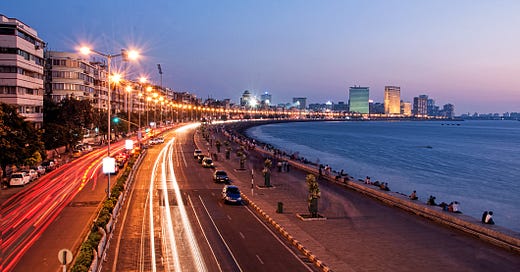Emerging Markets Daily - February 21
India Stocks Defy Reality, Saudi vs Russia on OPEC+, HSBC Increases "Pivot to Asia," Southern Africa Green Bonds, S. Korea Labor Crisis
The Top 5 Emerging Markets Stories - February 21
India Stocks Defy Economic Reality
“Signs of speculation are rife in global markets right now. But India stands out: The roaring stock market there looks particularly disjointed from economic reality.”
“India’s benchmark stock index, the Sensex, is up 22% since the beginning of 2020, almost exactly in line with the S&P 500. But the economic backdrop is quite different.”
“To illustrate just how frenetic India’s market has become, compare it with other emerging markets dependent on oil imports. In U.S. dollar terms, the benchmark MSCI equity indexes for Indonesia, Turkey, the Philippines and Thailand are down by between 7% and 12% relative to their levels at the beginning of 2020.”
“India’s performance in fighting Covid-19 isn’t enough to justify such a wide gap: The International Monetary Fund estimates that a full recovery for India won’t come until some time in the first half of 2022. That’s faster than Thailand due to the latter’s dependence on international tourism, but slower than Indonesia, which should reach pre-pandemic levels of gross domestic product this year.”
“As in many places, more speculative forms of trading activity have surged: Turnover from proprietary investors reached its highest levels since 2009 in January, up more than 160% from a year earlier,” The Wall Street Journal reports.
Saudis, Russia Differ Again on Oil Strategy Before OPEC+ Meeting
“Saudi Arabia and Russia are once again heading into an OPEC+ meeting on opposite sides of a crucial debate about the oil market.”
“Riyadh is publicly urging fellow members to be ‘extremely cautious,’ despite prices rebounding to a one-year high. In private, the kingdom has signaled it would prefer that the group broadly holds output steady, delegates said. Moscow, on the other hand, is indicating that it still wants to proceed with a supply increase.”
“The positions mirror those taken at recent meetings, but this time the Saudis have a new bargaining chip -- 1 million barrels a day of voluntary cuts. The kingdom pledged to make these extra curbs only in February and March, but some see signs that could change as the negotiations get underway.” Bloomberg reports
Senior HSBC Execs Relocating to Hong Kong as Part of “Pivot to Asia”
“HSBC Holdings is considering the return of some global leaders to the bank’s original hometown, reinforcing Asia’s role as its centre of gravity.”
“A cadre of senior executives is set to relocate in coming months to Hong Kong from HSBC’s Canary Wharf headquarters, say people familiar with the plans, as Europe’s biggest bank pares its global ambitions.”
“Chief executive officer Noel Quinn will begin marketing what is known internally as the ‘pivot to Asia’ on Tuesday when he announces 2020 earnings. Moving the trio – Nuno Matos, chief executive of wealth and personal banking; Greg Guyett, co-head of global banking and markets, and Barry O’Byrne, chief executive of global commercial banking – would mean businesses responsible in 2019 for 95 per cent of net revenue will be run out of Hong Kong.” South China Morning Post/Bloomberg report.
Development Bank of Southern Africa Launches its First Green Bond
“It’s been exactly 14 years since the green bond market kicked off, and precisely four years since South Africa launched these kinds of bonds. But now more than ever, the appetite for these specific investment vehicles is growing as investors look for eco-friendly projects. Even Covid-19 could not slow its popularity.”
“Now, the Development Bank of Southern Africa (DBSA) has launched its first green bond amounting to R3.59-billion. The bond, which will assist the bank to finance green projects, was issued through a private placement with the French development finance institution Agence Française de Développement.” Mail & Guardian reports
South Korea Facing Worst Labor Market Crisis Since 1997
“The prolonged novel coronavirus outbreak has dealt a body blow to the labor market in South Korea, causing the number of people in paid employment to plunge by nearly 1 million in January alone.”
“The current unemployment crisis is the worst since South Korea's financial crunch of 1997, President Moon Jae-in said Monday, pledging that his administration would take all possible measures to cope with it. But government-led efforts to create jobs have their limits.” Nikkei Asia reports



